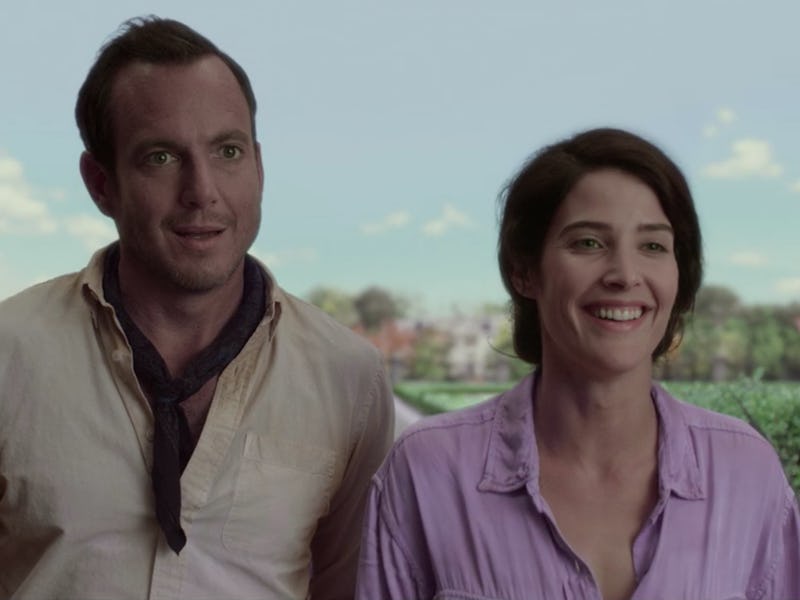Netflix's 'Unfortunate Events' Fixed the Problematic and Confusing Books
Why a frustrating book series has been improved dramatically onscreen in the Netflix version.

Netflix’s resurrection of A Series of Unfortunate Events has been a resounding success, but it could have easily fumbled. The 13-book series ends on a polarizing note, and few of the series’s loose ends are ultimately tied. Further, the franchise originally became popular during the late ‘90s and early 2000s. Like its YA brethren — Harry Potter, The Hunger Games, Twilight — there’s one distinct aspect of hasn’t aged well in the ensuing years: its overarching whiteness. But after a first season that’s tackled the first four novels in the series, it’s already apparent that the Netflix adaptation rises above its source material. It’s accomplished this through two main avenues: giving the story a woke facelift and fleshing out its overarching mystery.
Spoilers for Netflix’s A Series of Unfortunate Events ahead.
One flaw of the book series was that it did not answer certain questions. Rather, it gave the impression that the author wrote himself into a corner and didn’t actually know the answers. The Harry Potter series never explained everything, of course, and it’s possible J.K. Rowling didn’t plan everything, either. But that series provided enough satisfactory answers to keep fans from losing it. On the other hand, in the book version of A Series of Unfortunate Events — which saw its popularity in the height of the Potter era — it ignored its mysteries in such a manner that it reeked of authorial ambivalence rather than intent.
But right off the bat, the Netflix series feels more confident than the books; the aura of underlying conspiracy feels fleshed out even if it isn’t presented up-front to the viewer.
Lemony Snicket in Netflix's 'A Series of Unfortunate Events'
The end of the first episode lands with a startling revelation for fans of the books: The show has made a major change and the Baudelaire orphan’s parents are actually alive, played by Will Arnett and Colbie Smulders. Each ensuing episode ends by checking in with them, which deepens the air of intrigue and ups the stakes. This is further exacerbated by the continuous presence of new character Jaquelyn, who is enmeshed in the story’s central conspiracy and shines a spotlight on it with her every onscreen appearance.
Not only is she a fun character — as she skulks around secret tunnels and navigates trap doors, all while clad in a series of elaborate disguises — but she, too, helps the spy narrative aspect of the story feel more developed. Even though the viewer still doesn’t have much information about the secrets that plague the Baudelaire orphans lives, in allowing us glimpses of this world’s underbelly, the Netflix version enables it to feel like we know more. The end result is enticing rather than frustrating.
Jacquelyn as the statue
The other major flaw of the original book series, other than plot stuff, was a seeming lack of diversity pervading the entire world. This startling all-whiteness was reflected in the 2004 film version of Unfortunate Events too. But now, the show has a politically “woke” facelift, Mr. Poe — the incompetent, but well-meaning banker charged with placing the Baudelaire orphans with a guardian — is never overtly described as “white” in the books, though the illustrations depict him as such. The 2004 film highlights this “white by default” approach, as he’s played by Timothy Spall. By contrast, in the new Netflix series, he’s played by Todd Freeman. This casting has no impact on the plot, but it adds much-needed diversity to the world. Similarly, where the books present The Miserable Mill’s Charles and Sir as business partners with ambiguous relationship undertones, the show overtly specifies their sexuality.
In showcasing the conspiracy earlier and more prominently than the in books, the show has already improved upon the plotting of original story. And by creating a diverse cast of characters, it’s made the story accessible to a larger audience. The penultimate episode of Season 1 reveals that the Baudelaire parents are not alive after all, and the series was deliciously fucking with us the whole time. But this time we’re not mad one bit. Showing an aspect of the conspiracy onscreen — even when it was the Quagmire parents instead of the Baudelaires — made all the difference. Whereas the books made the reader feel like the butt of a long, elaborate, and sometimes insensitive joke, the show at least invites the audience to participate in the adventure.